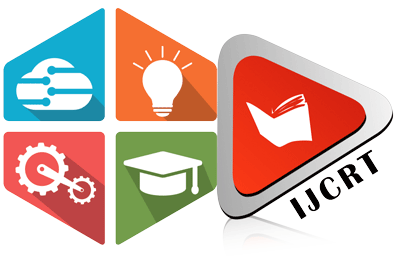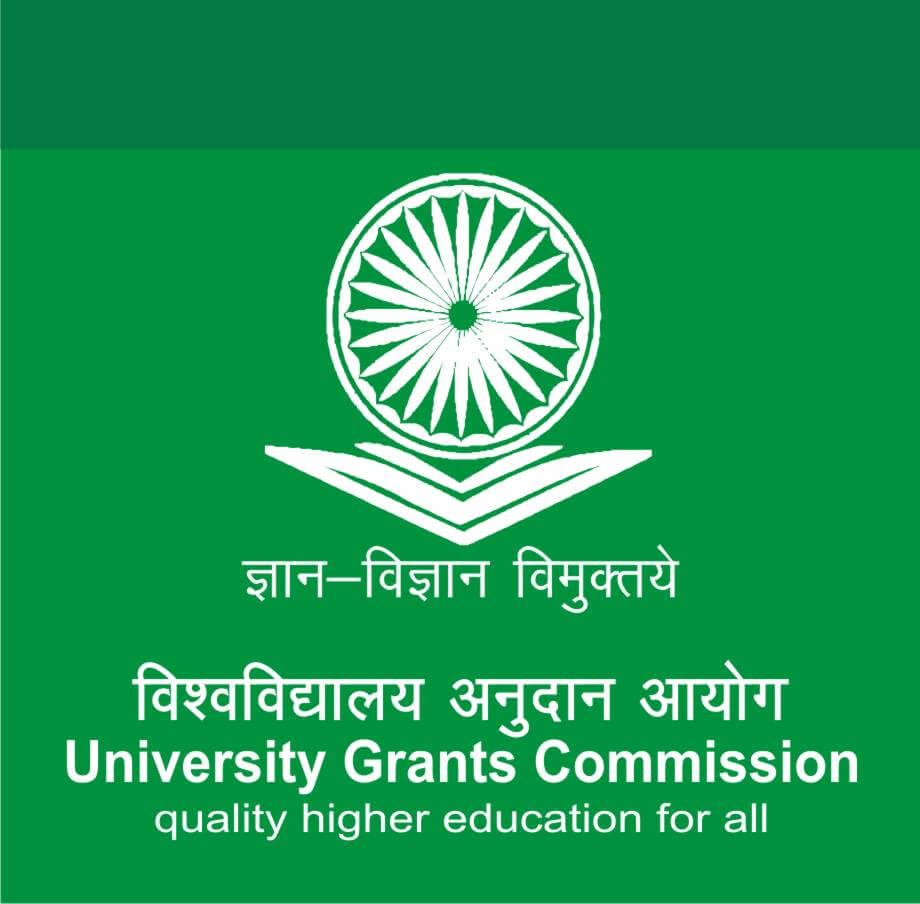INTERNATIONAL JOURNAL OF CREATIVE RESEARCH THOUGHTS - IJCRT (IJCRT.ORG)
International Peer Reviewed & Refereed Journals, Open Access Journal
IJCRT Peer-Reviewed (Refereed) Journal as Per New UGC Rules.
ISSN Approved Journal No: 2320-2882 | Impact factor: 7.97 | ESTD Year: 2013
Call For Paper - Volume 13 | Issue 11 | Month- November 2025
Scholarly open access journals, Peer-reviewed, and Refereed Journals, Impact factor 7.97 (Calculate by google scholar and Semantic Scholar | AI-Powered Research Tool) , Multidisciplinary, Monthly, Indexing in all major database & Metadata, Citation Generator, Digital Object Identifier(CrossRef DOI)
Contact Us Click Here
WhatsApp Contact Click Here
Volume 12 | Issue 9 |
| IJCRT Journal front page | IJCRT Journal Back Page |
Paper Title: TRACHEOSTOMY CARE
Author Name(s): ASHA CHRISTINA
Published Paper ID: - IJCRT2409225
Register Paper ID - 268811
Publisher Journal Name: IJPUBLICATION, IJCRT
DOI Member ID: 10.6084/m9.doi.one.IJCRT2409225 and DOI :
Author Country : Indian Author, India, 600045 , chennai, 600045 , | Research Area: Health Science All Published Paper URL: http://ijcrt.org/viewfull.php?&p_id=IJCRT2409225 Published Paper PDF: download.php?file=IJCRT2409225 Published Paper PDF: http://www.ijcrt.org/papers/IJCRT2409225.pdf
Your Paper Publication Details:
Title: TRACHEOSTOMY CARE
DOI (Digital Object Identifier) :
Pubished in Volume: 12 | Issue: 9 | Year: September 2024
Publisher Name : IJCRT | www.ijcrt.org | ISSN : 2320-2882
Subject Area: Health Science All
Author type: Indian Author
Pubished in Volume: 12
Issue: 9
Pages: c1-c6
Year: September 2024
Downloads: 143
E-ISSN Number: 2320-2882
Abstract
A tracheostomy is an opening into the trachea through the neck just below the larynx through which an indwelling tube is placed and thus an artificial airway is created. It is used for clients needing long-term airway support. Nurses provide tracheostomy care for clients with new or recent tracheostomy to maintain patency of the tube and minimize the risk for infection (since the inhaled air by the client is no longer filtered by the upper airways). Initially a tracheostomy may need to be suctioned and cleaned as often as every 1 to 2 hours. After the initial inflammatory response subsides, tracheostomy care may only need to be done once or twice a day, depending on the client.
Licence: creative commons attribution 4.0
License
Keywords
tracheostomy, indwelling,patent airway ,Humidification,secretions,cannula
License
Paper Title: "A DESCRIPTIVE STUDY TO ASSESS THE KNOWLEDGE AND ATTITUDE OF PARENTS REGARDING CARE OF MENTALLY RETARDED CHILD AT SELECTED SPECIALLY ABLED SCHOOLS OF JODHPUR"
Author Name(s): Mrs Manju Sharma
Published Paper ID: - IJCRT2409224
Register Paper ID - 268879
Publisher Journal Name: IJPUBLICATION, IJCRT
DOI Member ID: 10.6084/m9.doi.one.IJCRT2409224 and DOI :
Author Country : Indian Author, India, 342005 , Jodhpur, 342005 , | Research Area: Health Science All Published Paper URL: http://ijcrt.org/viewfull.php?&p_id=IJCRT2409224 Published Paper PDF: download.php?file=IJCRT2409224 Published Paper PDF: http://www.ijcrt.org/papers/IJCRT2409224.pdf
Your Paper Publication Details:
Title: "A DESCRIPTIVE STUDY TO ASSESS THE KNOWLEDGE AND ATTITUDE OF PARENTS REGARDING CARE OF MENTALLY RETARDED CHILD AT SELECTED SPECIALLY ABLED SCHOOLS OF JODHPUR"
DOI (Digital Object Identifier) :
Pubished in Volume: 12 | Issue: 9 | Year: September 2024
Publisher Name : IJCRT | www.ijcrt.org | ISSN : 2320-2882
Subject Area: Health Science All
Author type: Indian Author
Pubished in Volume: 12
Issue: 9
Pages: b990-b998
Year: September 2024
Downloads: 188
E-ISSN Number: 2320-2882
Abstract
Abstract:- INTRODUCTION Mental retardation, also known as intellectual disability, is a condition characterized by limitations in intellectual functioning and adaptive behavior. Parents of mentally retarded children play a pivotal role in their care and development. Specially abled schools provide an environment where these children receive education and support tailored to their needs. Every parent wants their child to be physically and developmentally perfect. Often some children have a temporary or permanent physical or mental disability. The birth of a child with a disability, or the discovery that a child has a disability, can have profound effects on the family. But "Every child is special" STATEMENT OF PROBLEM "A descriptive study to assess the knowledge and attitude of parents regarding care of mentally retarded child at selected specially abled schools of Jodhpur, with the view to develop information booklet." OBJECTIVES OF THE STUDY: - 1.To assess knowledge regarding mental retardation among parents of mentally retarded children. 2.To assess attitude regarding mental retardation among parents of mentally retarded children . 3. To find out the association between knowledge regarding mental retardation among parents of mentally retarded children with their socio demographic variables. 4. To find out the association between attitude regarding mental retardation among parents of mentally retarded children with their socio demographic variables. 5.To find out the correlation between knowledge and attitude regarding mental retardation among parents of mentally retarded children. METHOD RESEARCH APPROACH: Quantitative approach will be the used for the study. RESEARCH DESIGN: Non-experimental descriptive research will be used for the study. SETTING OF THE STUDY: The study will be conducted at selected specially abled schools of Jodhpur, Rajasthan. POPULATION: In this study population are parents of mentally retarded children at specially abled school of Jodhpur, Rajasthan. SAMPLE & SAMPLE SIZE: In this study sample consists of 100 parents DATA ANALYSIS The data was planed according on the basis of objectives and hypothesis of the study. Among the participants, a significant majority, constituting 88%, fell within the Poor Knowledge category, scoring between 1 to 5. Conversely, only 12% of the parents demonstrated an Average Knowledge level, scoring between 6 to 14. Notably, there were no participants who achieved a Good Knowledge level, as none fell within the scoring range of 15 to 20. Within this category, the mean knowledge score was calculated to be 4.39, with a median score of 5.00 and a standard deviation of 0.734. The scores ranged from a minimum of 3 to a maximum of 5. The scoring criteria categorized the attitudes into three distinct levels: Negative attitude, Natural attitude, and Positive attitude. Negative attitude encompassed scores ranging from 20 to 46, representing 28% of the sample, while Natural attitude included scores between 47 and 73, constituting the majority at 60%. Positive attitude, denoted by scores falling within the range of 74 to 100, was represented by 12% of the respondents. CONCLUSION The study found a significant association between parents' knowledge of mental retardation and various socio-demographic factors. Additionally, cultural beliefs and societal norms significantly influenced attitudes, with 70% of parents from cultures that value community support exhibiting positive attitudes compared to only 40% of parents from cultures with strong stigmatization of mental retardation.
Licence: creative commons attribution 4.0
License
Keywords
KEY WORDS :- Assess, Knowledge, Attitude, Special abled child
License
Paper Title: ORGANIC HORTICULTURE TECHNIQUES FOR ECO-FRIENDLY SUSTAINABLE
Author Name(s): Soumya Padhan, Shantanu Bhattacharyya, Pratibha Rani Deep
Published Paper ID: - IJCRT2409223
Register Paper ID - 268881
Publisher Journal Name: IJPUBLICATION, IJCRT
DOI Member ID: 10.6084/m9.doi.one.IJCRT2409223 and DOI :
Author Country : Indian Author, India, 752050 , Bhubaneshwar, 752050 , | Research Area: Biological Science Published Paper URL: http://ijcrt.org/viewfull.php?&p_id=IJCRT2409223 Published Paper PDF: download.php?file=IJCRT2409223 Published Paper PDF: http://www.ijcrt.org/papers/IJCRT2409223.pdf
Your Paper Publication Details:
Title: ORGANIC HORTICULTURE TECHNIQUES FOR ECO-FRIENDLY SUSTAINABLE
DOI (Digital Object Identifier) :
Pubished in Volume: 12 | Issue: 9 | Year: September 2024
Publisher Name : IJCRT | www.ijcrt.org | ISSN : 2320-2882
Subject Area: Biological Science
Author type: Indian Author
Pubished in Volume: 12
Issue: 9
Pages: b981-b989
Year: September 2024
Downloads: 153
E-ISSN Number: 2320-2882
Abstract
Taking care of the environment is very important today, and sustainable farming is key for our planet's health. Organic horticulture, which uses natural farming methods, is leading this effort. "Organic Horticulture Techniques for Eco-Friendly Agriculture" is an easy- to-understand guide on these practices. It explains how we can farm in ways that protect the environment and ensure a healthy future. Organic horticulture focuses on natural ways to control pests, enrich soil, and rotate crops, working with nature rather than against it. By using these methods, farmers reduce their impact on the environment and support biodiversity and soil health. Traditional farming, which relies on manual labor and natural resources, also supports sustainability. Combining old and new methods can boost environmental benefits. Organic farming avoids synthetic chemicals and uses natural methods to improve soil and control pests, keeping soil healthy and promoting biodiversity while ensuring fair treatment of workers. Balancing organic and chemical fertilizers can help with sustainable crop production. With India's growing population, sustainable farming is crucial for saving resources and supporting biodiversity. Organic farming improves soil health, reduces pesticide use, and supports ecosystems by following nature's way. Its main goals are to increase biodiversity, maintain soil health, and create a sustainable farming system
Licence: creative commons attribution 4.0
License
Keywords
Organic farming, composting, biofertilizer
License
Paper Title: A REVIEW ON CERVICAL SPONDYLOSIS W.S.R. TO MANYASTAMBHA AND IT'S MANAGEMENT
Author Name(s): Dr. Harpreet Singh, Dr. K.K Sharma, Gyanendra Datta Shukla, Dr. Deepak Kumar
Published Paper ID: - IJCRT2409222
Register Paper ID - 268785
Publisher Journal Name: IJPUBLICATION, IJCRT
DOI Member ID: 10.6084/m9.doi.one.IJCRT2409222 and DOI :
Author Country : Indian Author, India, 246149 , PAURI GARHWAL, 246149 , | Research Area: Humanities All Published Paper URL: http://ijcrt.org/viewfull.php?&p_id=IJCRT2409222 Published Paper PDF: download.php?file=IJCRT2409222 Published Paper PDF: http://www.ijcrt.org/papers/IJCRT2409222.pdf
Your Paper Publication Details:
Title: A REVIEW ON CERVICAL SPONDYLOSIS W.S.R. TO MANYASTAMBHA AND IT'S MANAGEMENT
DOI (Digital Object Identifier) :
Pubished in Volume: 12 | Issue: 9 | Year: September 2024
Publisher Name : IJCRT | www.ijcrt.org | ISSN : 2320-2882
Subject Area: Humanities All
Author type: Indian Author
Pubished in Volume: 12
Issue: 9
Pages: b970-b980
Year: September 2024
Downloads: 161
E-ISSN Number: 2320-2882
Abstract
Cervical spondylosis is a natural age-related disease process that is associated with degenerative changes within the intervertebral disc. Loss of curvature, reduction of disc space, osteophytes formation these are main anatomical changes associated with cervical spondylosis that is a common spinal problem nowadays. The prevalence of cervical spondylosis is rising due to the advancements in a busy, professional, and social life, poor sitting posture in offices, continuous work, working long hours on computers, night jobs, watching hours of television, sleeping on abnormally soft mattresses and pillows, and placing the bare minimum importance on healthy physical, mental, and dietary habits. Based on sign and symptoms mentioned above cervical spondylosis can be corelated to Manyastambha. Manyastambha is explained one of the Vataja Nanatmaja Vikara. In Manyastambha mainly Vata Dosha and Kapha Dosha get aggravated and take Ashraya at Manya Pradesh, affecting the Manya Siras (nerves of neck) causing Ruja(pain) and Stambha (stiffness or difficulty in mobility) of the neck. In Ayurveda, there are various treatment modalities, among them Ruksha Sweda (dry fomentation) has been given much importance, Patra Pinda Sweda with Vatahara Dravyas, and Agnikarma has been also found effectively managing the pain and stiffness in Manyastambha.
Licence: creative commons attribution 4.0
License
Keywords
Manyastanbha, Snigdha sweda, Ruksha Sweda, Agnikarma, Cervical Spondylosis.
License
Paper Title: CAREER MATURITY OF SECONDARY SCHOOL STUDENTS IN RELATION TO FAMILY ENVIRONMENT
Author Name(s): MANJINDER SINGH
Published Paper ID: - IJCRT2409221
Register Paper ID - 268899
Publisher Journal Name: IJPUBLICATION, IJCRT
DOI Member ID: 10.6084/m9.doi.one.IJCRT2409221 and DOI :
Author Country : Indian Author, India, 141101 , LUDHIANA, 141101 , | Research Area: Arts1 All Published Paper URL: http://ijcrt.org/viewfull.php?&p_id=IJCRT2409221 Published Paper PDF: download.php?file=IJCRT2409221 Published Paper PDF: http://www.ijcrt.org/papers/IJCRT2409221.pdf
Your Paper Publication Details:
Title: CAREER MATURITY OF SECONDARY SCHOOL STUDENTS IN RELATION TO FAMILY ENVIRONMENT
DOI (Digital Object Identifier) :
Pubished in Volume: 12 | Issue: 9 | Year: September 2024
Publisher Name : IJCRT | www.ijcrt.org | ISSN : 2320-2882
Subject Area: Arts1 All
Author type: Indian Author
Pubished in Volume: 12
Issue: 9
Pages: b963-b969
Year: September 2024
Downloads: 157
E-ISSN Number: 2320-2882
Abstract
The current study examines secondary school students' career maturity in relation to the family environment. The primary goal of this research is to determine the relationship between career maturity and family environment among 10+1 grade students in the district of Ludhiana, Punjab. The current study used descriptive research methodology with a survey technique. The current study is quantitative in nature. The researcher collected 200 samples for this study from the Ludhiana district. The data was collected using Gupta's (1989) Career Maturity Inventory and Bhatia and Chadha's (1993) Family Environment Scale. After analyzing the data, it was discovered that there is a very strong positive correlation between career maturity and family environment. There was no significant difference in career maturity between boys and girls, but girls have a better family impact than boys.
Licence: creative commons attribution 4.0
License
Keywords
career maturity, family environment
License
Paper Title: Understanding Prediabetes Samprapti In Terms Of Shatkriyakala From Ayurvedic Perspective
Author Name(s): Dr. Archana Arun Kulkarni, Dr. Manjiri Sadanand Deshpande.
Published Paper ID: - IJCRT2409220
Register Paper ID - 268858
Publisher Journal Name: IJPUBLICATION, IJCRT
DOI Member ID: 10.6084/m9.doi.one.IJCRT2409220 and DOI :
Author Country : Indian Author, India, 411058 , Pune, 411058 , | Research Area: Health Science All Published Paper URL: http://ijcrt.org/viewfull.php?&p_id=IJCRT2409220 Published Paper PDF: download.php?file=IJCRT2409220 Published Paper PDF: http://www.ijcrt.org/papers/IJCRT2409220.pdf
Your Paper Publication Details:
Title: UNDERSTANDING PREDIABETES SAMPRAPTI IN TERMS OF SHATKRIYAKALA FROM AYURVEDIC PERSPECTIVE
DOI (Digital Object Identifier) :
Pubished in Volume: 12 | Issue: 9 | Year: September 2024
Publisher Name : IJCRT | www.ijcrt.org | ISSN : 2320-2882
Subject Area: Health Science All
Author type: Indian Author
Pubished in Volume: 12
Issue: 9
Pages: b957-b962
Year: September 2024
Downloads: 159
E-ISSN Number: 2320-2882
Abstract
Introduction: Prediabetes is a condition that precedes diabetes. Blood glucose levels become higher than normal but are not classified as diabetes. It is often described as a 'grey area' between normal blood sugar and diabetes. Understanding the pathophysiology of prediabetes from an Ayurvedic perspective, in terms of Shatkriyakala, will help intervene in the progression of the disease at crucial time points and prove useful in preventing further complications. Method: A review of related topics was conducted using various classical Ayurvedic texts and modern sources. The compiled data was analyzed for proper interpretation of the topic. Discussion: Prediabetes is a disease entity that shares characteristics with Prameha in Ayurvedic classics. The aetiology, pathophysiology, and symptoms are similar. Kapha and Meda share similar qualitative features and functions, and both are vitiated by similar etiological factors. In Prameha, Bahudrava Shleshma affects the Meda, Mamsa, and Kleda Dhatus, altering their quality. The pathogenesis of prediabetes can be elaborated in the same manner as Prameha. High-calorie diets, sedentary lifestyles, and lack of physical activities lead to obesity and dyslipidaemias. This is the Sanchay stage, resulting in the production of excess free fatty acids, which are directed to the liver. This represents the Prakopa of Amaroopa Sleshma and Abaddha Meda. In the Prasar stage, these fatty acids circulate throughout the body and occupy insulin receptors in the Sthansamshraya stage. This results in insulin resistance in the body tissues, leading to prediabetes.
Licence: creative commons attribution 4.0
License
Keywords
Prediabetes, Samprapti, Shatkriyakala
License
Paper Title: Pattern of migration among rural household in West Khasi Hills District of Meghalaya
Author Name(s): Veni Excel Amity Marwein
Published Paper ID: - IJCRT2409219
Register Paper ID - 268705
Publisher Journal Name: IJPUBLICATION, IJCRT
DOI Member ID: 10.6084/m9.doi.one.IJCRT2409219 and DOI :
Author Country : Indian Author, India, 793119 , Nongstoin, 793119 , | Research Area: Social Science All Published Paper URL: http://ijcrt.org/viewfull.php?&p_id=IJCRT2409219 Published Paper PDF: download.php?file=IJCRT2409219 Published Paper PDF: http://www.ijcrt.org/papers/IJCRT2409219.pdf
Your Paper Publication Details:
Title: PATTERN OF MIGRATION AMONG RURAL HOUSEHOLD IN WEST KHASI HILLS DISTRICT OF MEGHALAYA
DOI (Digital Object Identifier) :
Pubished in Volume: 12 | Issue: 9 | Year: September 2024
Publisher Name : IJCRT | www.ijcrt.org | ISSN : 2320-2882
Subject Area: Social Science All
Author type: Indian Author
Pubished in Volume: 12
Issue: 9
Pages: b947-b956
Year: September 2024
Downloads: 147
E-ISSN Number: 2320-2882
Abstract
Migration is one of the factors determining population growth. There is a general perception that migration in Meghalaya is on the higher side. Incidentally, the decadal growth rate of Meghalaya during 2001 to 2011 is the highest among all the states of India. According to the 2011 Census, about 25.60 percent of the total population are migrants in the state of Meghalaya. Of these a major share belongs to intra-state migrants. The paper examines migration among rural households in Meghalaya by using primary data sources. The area of study is West Khasi Hills District of Meghalaya with a random sample size of 400 rural households. The paper will focus on the reasons for migration. Migration in West Khasi Hills is influenced by both push and pull factors highlighted by Ravenstein (1885) and Lee (1966). Apart from economic migrants, non-economic migrants include migration for education and marriage migration. Findings show marriage migration is higher among males than the females which is dictated by the matrilocal system of the matrilineal society of Meghalaya. Interestingly, educational migration is higher among females than males. This shows that educational aspiration among females is greater than their male counterparts.
Licence: creative commons attribution 4.0
License
Keywords
migration, reasons, West Khasi Hills
License
Paper Title: Women in Temple of Democracy: A Sociological Analysis of Political Participation of Women In India
Author Name(s): Dr. Neha Yadav
Published Paper ID: - IJCRT2409218
Register Paper ID - 268897
Publisher Journal Name: IJPUBLICATION, IJCRT
DOI Member ID: 10.6084/m9.doi.one.IJCRT2409218 and DOI :
Author Country : Indian Author, India, 209868 , Unnao, 209868 , | Research Area: Medical Science All Published Paper URL: http://ijcrt.org/viewfull.php?&p_id=IJCRT2409218 Published Paper PDF: download.php?file=IJCRT2409218 Published Paper PDF: http://www.ijcrt.org/papers/IJCRT2409218.pdf
Your Paper Publication Details:
Title: WOMEN IN TEMPLE OF DEMOCRACY: A SOCIOLOGICAL ANALYSIS OF POLITICAL PARTICIPATION OF WOMEN IN INDIA
DOI (Digital Object Identifier) :
Pubished in Volume: 12 | Issue: 9 | Year: September 2024
Publisher Name : IJCRT | www.ijcrt.org | ISSN : 2320-2882
Subject Area: Medical Science All
Author type: Indian Author
Pubished in Volume: 12
Issue: 9
Pages: b937-b946
Year: September 2024
Downloads: 130
E-ISSN Number: 2320-2882
Abstract
The making of the Constitution brought the women legal equality. Though the constitutional provisions allowed the women to leave the relative calm of the domestic sphere to enter the male-dominated political sphere, the involvement of women in politics has been low key. This article enumerates the factors which have resulted in a wide chasm between the dejure and defacto' status of political participation of women in India. Political participation is a complex phenomenon, which can be comprehended by analyzing several factors. With a purpose of studying this complex situation the article has classified the factors into three categories psychological variable, socio-economic variable and political variable. It concludes that the participation of women is essential as a demand of simple justice as well as a necessary condition for human existence. This can be achieved not just by increasing the numbers but by ensuring that women leaders perceive the problems and effectively resolve the issues. The acceptance of their own equality and confidence in their ability will go a long way in altering the political scenario.
Licence: creative commons attribution 4.0
License
Keywords
Political Participation, Gender, Indian Politics
License
Paper Title: CASE STUDY ON AYURVEDIC INTERVENTIONS FOR LUMBAR SPONDYLOSIS: FOCUSING ON KATIGRAHA
Author Name(s): Dr. Devarakonda Madhuri., Dr. KAMALAXI.M.ANGADI MD(AYU)
Published Paper ID: - IJCRT2409217
Register Paper ID - 268820
Publisher Journal Name: IJPUBLICATION, IJCRT
DOI Member ID: 10.6084/m9.doi.one.IJCRT2409217 and DOI :
Author Country : Indian Author, India, 582114 , Gajendragad , GADAG, 582114 , | Research Area: Humanities All Published Paper URL: http://ijcrt.org/viewfull.php?&p_id=IJCRT2409217 Published Paper PDF: download.php?file=IJCRT2409217 Published Paper PDF: http://www.ijcrt.org/papers/IJCRT2409217.pdf
Your Paper Publication Details:
Title: CASE STUDY ON AYURVEDIC INTERVENTIONS FOR LUMBAR SPONDYLOSIS: FOCUSING ON KATIGRAHA
DOI (Digital Object Identifier) :
Pubished in Volume: 12 | Issue: 9 | Year: September 2024
Publisher Name : IJCRT | www.ijcrt.org | ISSN : 2320-2882
Subject Area: Humanities All
Author type: Indian Author
Pubished in Volume: 12
Issue: 9
Pages: b931-b936
Year: September 2024
Downloads: 162
E-ISSN Number: 2320-2882
Abstract
Katigraha, correlating with Lumbar Spondylosis in Ayurveda, is a significant clinical, social, economic, and public health issue worldwide. Lumbar Spondylosis, prevalent among middle-aged and elderly populations, affects both genders equally[ Dragan Sekuli?. Effect of shock vibrations due to speed control humps to the health of city bus drivers. Scientific Research and Essays. 2012 Feb 9;7(5).] . Lower back pain is prevalent in 60% to 70% of individuals in industrialized countries[ Luk KDK, Samartzis D. Intervertebral disc "dysgeneration." The Spine Journal. 2015 Sep;15(9):1915-8.] . In Ayurveda, the treatment of Katigraha focuses on the principle of creating Anuloman (proper movement) in the Pakwashaya (colon), with special importance given to Apana Vata Anuloman Chikitsa[ Sharma Acharya Priya Vrat, Sukla Acharya Vidhyadhar and Tripathi Prof.Ravidatt, Charak Samhita Hindi Commentry, Chaukhamba Sanskrit Pratisthan Delhi,2013. E-ChikitSthan, Adhyay 28 , Shlok90 .Page no. 690] .This case study involves a 45-year-old female patient who presented with low back pain radiating to the left lower limb, stiffness in the hip region, restricted movement of lower limbs, and difficulty walking for the past two years. The patient was administered Trayodashang Guggul, Rasnasapthakam Kwath, and Basti Panchakarma Chikitsa[ Sharma Acharya Priya Vrat, Sukla Acharya Vidhyadhar and Tripathi Prof.Ravidatt, Charak Samhita Hindi Commentry, Chaukhamba Sanskrit Pratisthan Delhi,2013. E-SiddhiSthan, Adhyay 2 , Shlok16 .Page no. 876], which provided marked relief in pain and stiffness. The management of Katigraha with these Ayurvedic interventions was effective. While both Katigraha and Lumbar Spondylosis involve lower back pain and stiffness, their underlying causes, pathophysiology, and treatment approaches differ significantly. Katigraha is viewed through the lens of Dosha imbalances in Ayurveda, focusing on holistic and natural therapies, whereas Lumbar Spondylosis is treated as a degenerative disease in modern medicine, often requiring pharmacological and surgical interventions. Both approaches emphasize lifestyle modifications and physical therapies for effective management and relief. This is a single case study of a 45-year-old female patient who presented to the OPD of Kayachikitsa Department in Bhagawan Mahaveer Jain Ayurvedic Medical College, Hospital Ayurveda with complaints of pain in the low back region radiating to the left lower limb, stiffness in the hip region, restricted movement of lower limbs, and difficulty in walking for the past two years (not continuous). The patient was administered Trayodashang guggul, Rasnasapthakam Kwath, and Basti Panchakarma Chikitsa. The treatment provided marked relief in pain, and stiffness. Based on this case study, it can be concluded that the management of Katigraha with Trayodashang guggul, Rasnasapthakam Kwath along with Panchakarma - Basti Chikitsa was effective.
Licence: creative commons attribution 4.0
License
Keywords
Katigraha, Lumbar Spondylosis, Trayodashang guggul, Rasnasapthakam Kwath, Panchakarma, Basti chikitsa.
License
Paper Title: SMART HORTICULTURE: ITS PROSPECTS AND FUTURE SCOPE
Author Name(s): Anchal Meher, Shantanu Bhattacharyya, Pratibha Rani Deep
Published Paper ID: - IJCRT2409216
Register Paper ID - 268873
Publisher Journal Name: IJPUBLICATION, IJCRT
DOI Member ID: 10.6084/m9.doi.one.IJCRT2409216 and DOI :
Author Country : Indian Author, India, 752050 , bhubaneshwar, 752050 , | Research Area: Biological Science Published Paper URL: http://ijcrt.org/viewfull.php?&p_id=IJCRT2409216 Published Paper PDF: download.php?file=IJCRT2409216 Published Paper PDF: http://www.ijcrt.org/papers/IJCRT2409216.pdf
Your Paper Publication Details:
Title: SMART HORTICULTURE: ITS PROSPECTS AND FUTURE SCOPE
DOI (Digital Object Identifier) :
Pubished in Volume: 12 | Issue: 9 | Year: September 2024
Publisher Name : IJCRT | www.ijcrt.org | ISSN : 2320-2882
Subject Area: Biological Science
Author type: Indian Author
Pubished in Volume: 12
Issue: 9
Pages: b924-b930
Year: September 2024
Downloads: 169
E-ISSN Number: 2320-2882
Abstract
This study has been undertaken to investigate the prospects and future scope of smart horticulture. As the world population grows, smart sustainable agriculture practices are a necessity to accommodate growing global food demands. Dijk et al. (2021) predict that between 2010 and 2050, the global food demand will increase by about one-third to nearly three-fifths--from -91% up to +8% of hunger risk--and so on. The traditional horticulture also confronts lots of devastating challenges like desertification, climate change, and environmental pollution which significantly reduces the productivity and food security as well. These challenges require the implementation of smart agriculture technologies such as precision farming, data analytics, IoT (Internet of Things), AI and robotics. Various interventions have been implemented to facilitate resource management, automate agricultural practices and enhance crop health and yield while reducing environmental footprint. Horticulture can be optimized by using technologies like computer vision, nanotechnology, biosensors and protected cultivation to advance the primary processes & bio-processes in horticultural science.
Licence: creative commons attribution 4.0
License
Keywords
smart agriculture technologies, data analytics, internet of things, AI and robotics, biosensors
License
November 2025
Volume 13 | Issue 11
Last Date :
30-Nov-2025
Submit Manuscript Online Impact Factor: 7.97 Review Results : Within 02-03 Days Paper Publication : Within 02-03 Days

ISSN: 2320-2882 Impact Factor: 7.97 and ISSN APPROVED Journal Starting Year (ESTD) : 2013

ISSN: 2320-2882 Impact Factor: 7.97 and ISSN APPROVED Journal Starting Year (ESTD) : 2013

CONFERENCE PROPOSAL CONFERENCE PROCEEDINGS







































































